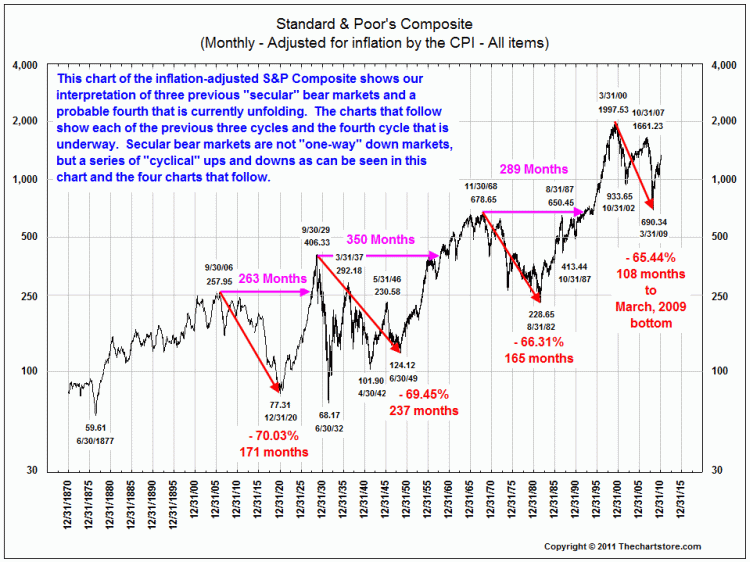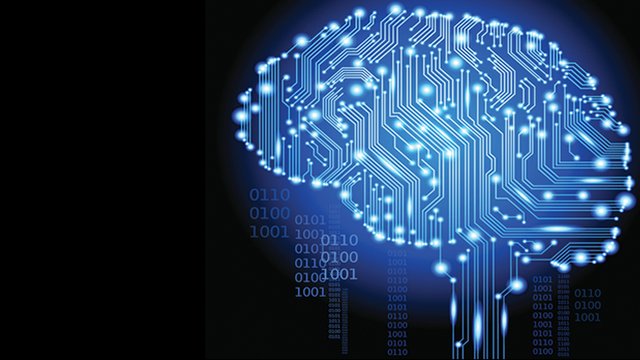Why Financial Crises Will Continue To Occur As Long As Humans Run The Markets
Human beings are emotional creatures, especially when it comes to money. There’s an old traders saying that if you trade on your emotions, you won’t be trading very long because you’ll lose all your money. However hard we may try though, human beings are not able to leave all emotions at the door. Just like markets have cycles of growth and shrinkage, so do human emotions within the market with regards to risk.

There was a famous economist named Dr. Hyman Minsky who believed that financial booms and busts were unavoidable because of basic human emotions. His idea was that over long periods of time, traders and investors would slowly become more comfortable with higher levels of risk until it got to a point where overleveraging would cause markets to crash. Then with a newly restored sense of risk, the cycle would reset and continue over again and again. Minsky believed that these were primarily the reasons why we saw cycles in economies, almost at a rate and certain periods that could be predicted. Later economists called the point in time where the economy reset, a “Minsky Moment”. The ideas that Minsky explored were just as much psychological as they were economical , but most importantly showed the flaws in human trading and risk assessment.

This brings me to my idea that as long as human beings run the markets, we will continuously see periods of high volatility in markets. With the use of computers that can control the markets and work as a market maker we could see much healthier and stable market growth over long periods of time. If computers have algorithms built in that don’t adjust for risks and bring emotion into trading, like human beings, there could a large benefit if we put them to work. Even now trading bots and algorithms are getting more advanced in order to make profit and supply stability to markets. There have been market maker bots on Wall Street for some while now, but we are currently seeing a rise of High Frequency trading bots that can do a massive amount of trades in a short period of time, while also potentially supplying stability.

The future I see is eventually having traders phased out of trading daily on the market, just like we have seen with the brokers on the trading floors in the past few years. Once AI bots can do all the same work as the human traders can do, with better results and with less risk, there will only be jobs available for the bot managers.
Overall if we can get to this point with some market stability as today, and avoid a total market collapse, we can move to a future where financial crises and over leverage will be a thing of the past. We would still have to worry about the government’s financial policies and how they leverage debt, but the private sector would be much safer in the long run. Let me know what you think in the comments, I look forward to seeing what you think will happen.
-Calaber24p
Having totally controlled AI systems that run everything could be very dangerous. Are we talking I-Robot here? I think you just nailed it in the head when you said Governments financial policies and leverage debt. Is not that the root of the real problem?
Even if you did have a fully automatic computer-controlled system, you would still have to deal with unpredictable situations such as weather, wars, and the greed of criminals. ..Unless you wanted to automate those things as well...which makes humans irrelevant except as workers in such a system.
In think many of the events you are describing have a far smaller effect on profits than traders today believe they do. Maybe in extreme conditions like a full out civil war, but most of the time, in the US market anyway, traders act very sensitively to events that barely hurt profits.
Perhaps we are talking different scales. Automated systems would not have stopped major market crashed such as: the great depression, WWI, WWII, Desert Storm, sub-prime loan crisis, EU sovereign debt crisis, Sept 11th after effects, Dot-com bubble, Black Wednesday, Japan's deflationary recession of the 90's, and numerous severe droughts. Right? Or am I missing something?
I would agree more automation, removal of more traders, makes the system more efficient, but I don't see how that translates into major volatility stabilization. ..by the way, this is not my area of expertise, so if it does, I would like to learn why!
I think the claim is that those market events were more extreme than they needed to be.
I don't agree with the claim. What "stabilizing AI" would do (and maybe to an extent has already done) is allow us to take even bigger risks. That is the deeper lesson here.
@smooth, you bring up an interesting point. Like the evolution of brakes in automobiles. Yes, they have enabled cars to stop faster, but overall it has allowed vehicles to increase in operational speed.
That's why bots do a better job playing the markets. All algorithm, no emotion.
that's the reason why we have flash crushes every now and then.
exactly
What if there are just bots playing the market? What happens then?
Two scenarios that are fun to consider:
On a side note, the vast majority of money in the markets today is speculative (something close to 85 percent I've heard). This money is trying to capture value from pricing inefficiencies. If the inefficiencies disappear, will investors pull their money from the markets, compounding the low volume I mentioned in scenario 2? How much risk will this low volume create?
So all that said, I think an all-bot marketplace would force the capital markets to take on a much different (smaller) role in our economy... and would be boring :)
That's what I am thinking. Most people with bot/AI/algo trading POV think about building the best bot and are pretty myopic in their perspective. But what happens after the bot's change the actual landscape and the system adapts around them?
There's an an analogue to that in passive vs active mgmt. There's been huge inflows to the former and everyone touts it as superior due to lower fees. But how well does a passive fund perform in an all passive universe?
The bots will be consistently as good as their program. Then it becomes a challenge to have a smarter algorithm then the rest of the bots.
The market is a lot easier to manipulate if computer runs the market.
I believe that these algorithms ARE based on emotions by the creators OF the algorithms, because they BELIEVE (Emotional decision) this or that algorithm will be better than another one. Or there would ONLY be 1 algorithm used in the ENTIRE marketplace because it IS the BEST.
"Yeah, well, that's just, like, MY opinion, man"
It's all in the 2nd to last sentence:
"We would still have to worry about the government’s financial policies"
That will always cause volitility in the markets...
Yeah this is going to be a bigger problem. Bots arent going to run the government..... yet
Great post. So much of what you say is true. I like the idea that one day there will be a computer that can automate everything. One that liberates humans from all kinds of slavery. One that allocates resources to robots which grow food for free, and build shelter and make clothing etc. That is where technology should take humans.
And causing flash crashes. :)
HFT is still in its infancy, more advanced algorithms that work the bots will come soon I guarantee it
Just by mentioning "Flash Crash" I see you ARE aware of how much the market IS controlled by ... bots .. (because of the amount of secrecy involved) just not really into theoretical debates ..
@calaber24p
1+2:. All value is created out of human interaction because we are fallible biological entities under an entropic ecosystem. The market is a by-product of the human experience. It cannot be run by bots.
For markets to become fully bot automated we need first to become cyborgs in a way that incorporates our entities with an advanced A.I.—with our needs and desires having litle to do with the physical world and more with an augmented version of reality.
This so far belongs to the domain of science fiction. If we ever reach that point, markets will be obsolete.
Precisely! I was about to post a similar reply, but you've stated it so cogently already.
Certainly, bots can do a lot of automatic work but an algorithm made by a human could be better than a human decision? Human or computer would become a God? Please, a little realism.
The best vote you received was from wang - a bot.
How appropriate!!
And @recursive is a good one too, not a bot.
I think even AI totally controlling the market, the cycles of ups and downs will be there due to instabilities of the fundamentals and policies. The fiat currency system, in particular, cannot ensure any long-term stability because it "requires" periodic resets.